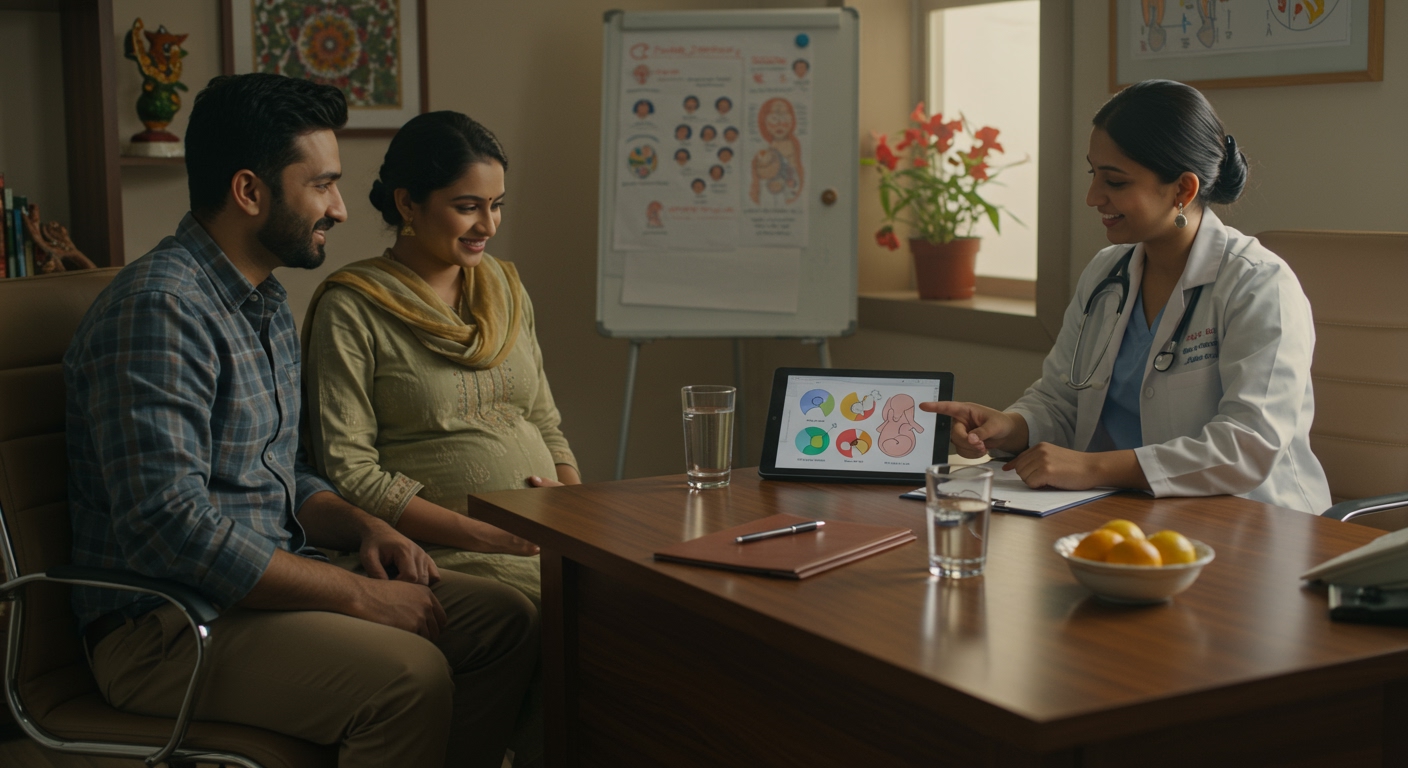Antenatal Care Myths vs. Facts: What Every Expectant Parent Should Know
Introduction: Why Antenatal Care Myths Matter
Antenatal care is the medical support given to pregnant women before birth. However, many antenatal care myths can confuse expectant parents. Because of this, it is important to know the truth about prenatal care. Separating facts from myths helps keep both mother and baby healthy. In this blog, we will explore common myths, share evidence-based facts, and offer tips to find reliable information.
Common Myths About Antenatal Care
Many myths about pregnancy and antenatal care still exist. Some may sound true, but they can be harmful. Let’s look at a few common myths:Myth 1: You only need to see a doctor if you feel unwell.Myth 2: Eating for two means doubling your food intake.Myth 3: Exercise is unsafe during pregnancy.Myth 4: All prenatal vitamins are the same.Myth 5: Morning sickness only happens in the morning.
Facts That Debunk Antenatal Care Myths
Now, let’s look at the facts that debunk these pregnancy myths. Knowing the truth about prenatal care can help you make better choices.Fact 1: Regular check-ups are vital, even if you feel fine. According to the WHO, early and regular visits help spot problems early.Fact 2: You do not need to eat twice as much. Instead, focus on healthy foods and balanced meals. The CDC suggests only a small increase in calories is needed.Fact 3: Exercise is safe for most pregnant women. In fact, gentle activity like walking or swimming can help. Always check with your doctor first.Fact 4: Not all prenatal vitamins are equal. Some may lack key nutrients like folic acid or iron. Choose vitamins recommended by your healthcare provider.Fact 5: Morning sickness can happen at any time of day. It is a common part of pregnancy, but not limited to mornings.
The Importance of Accurate Antenatal Care Information
Getting the right information about antenatal care is crucial. Misinformation can lead to poor choices or missed care. For example, believing myths may cause you to skip doctor visits or take unsafe supplements. Therefore, always check facts before making decisions. Trusted sources like the WHO and CDC provide up-to-date advice for expectant parents.
Tips for Finding Reliable Antenatal Care Information
It can be hard to know which sources to trust. However, there are ways to find reliable information:Look for advice from healthcare professionals, not just friends or social media.Check if the source is from a trusted group, like the CDC or WHO.Read information from hospitals or clinics with good reputations.Ask your doctor or nurse if you are unsure about something you read.
When to Consult a Healthcare Professional
Sometimes, you may feel unsure or worried during pregnancy. In these cases, it is best to talk to a healthcare provider. For example, if you have pain, bleeding, or feel unwell, seek help right away. Even if you just have questions about antenatal care myths and facts, your doctor can give you clear answers. Remember, no question is too small when it comes to your health.
Conclusion: Take Charge of Your Antenatal Care
In summary, knowing the truth about prenatal care helps you and your baby stay healthy. Do not let myths guide your choices. Instead, rely on facts and trusted sources. Consult a qualified healthcare provider for personalized antenatal care advice.











